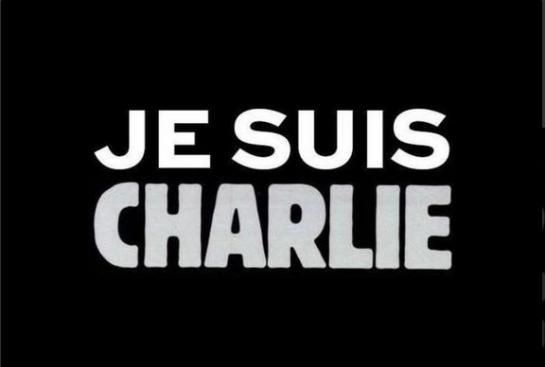Moi aussi je suis Charlie

Geoffrey K. Pullum at language.log:
"Should publishing a cartoon representation of the prophet Mohammed be punishable by death? After the massacre of magazine staff by lunatic Islamist murderers that took place in Paris two days ago, many who think the answer is "No" have begun displaying buttons or placards saying Je suis Charlie. I'd wear one myself if I could get one.
<...>
Linguistically, Je suis Charlie is unlike I'm Spartacus in one respect: it's ambiguous. The verb être ("be") and the verb suivre ("follow") happen to share the first-person singular present tense form suis, so Je suis Charlie can be read either as the mostly intended defiant moi aussi solidarity claim (I am Charlie too, and if you attack the magazine Charlie Hebdo you attack me), or the much less dramatic "I follow Charlie." I suppose the two meanings could be intended simultaneously, but it is surely the first that predominates.
The ambiguity is only there in the first-person singular. If we at Language Log wanted to say "We are Charlie", taking the side of Charlie Hebdo rather than the side of the cold-blooded killers who slaughtered the staff at the magazine's morning editorial conference, the French would be Nous sommes Charlie, and it would mean only "We are Charlie", not "We follow Charlie."
All official Muslim commentary on the Paris massacre has voiced shock and disapproval, but BBC Radio 4 interviewed a couple of British Muslims who insist that nothing can justify insulting the prophet, so the editorial staff and cartoonists in Paris brought their fate upon themselves. This is really rather shocking. The people who hold these views truly miss the point of the kind of society we have in countries like France, Britain, and America. It is simply not negotiable for us whether people should be free to express unpopular or even offensive views, linguistically or artistically: unless very substantial arguments can be given that harm will ensue (you don't get to shout "Fire!" in a crowded theater, or threaten someone with death), you should be free to hold whatever opinions you have come to and express them in any way you wish.
No matter how offensive some publication might be in (say) its denigration of religion-possibly your religion-the act of committing violence against its authors and publishers in reaction or revenge against it is far worse. In part this is because your freedom to practice and preach whatever religion you may choose (which Western values take to be essentially unchallengeable) can only be guaranteed by a society free enough to also allow other people to mock or denigrate your religion. Trying to take away the latter freedom is not compatible with defending any freedoms at all. So you may think some of Charlie Hebdo's cartoons have been offensive, but then I may think your religion is offensive. The only way to build a decent society (or so we believe in the West) is to grant both of us the freedom to express ourselves, and to deny us the right to silence each other.
<...>
А теперь задумаемся, насколько сильно отличаются от парижских ассасинов те, кто даёт "двушечку" за панк-молебен и принимает законы о "защите чувств верующих".